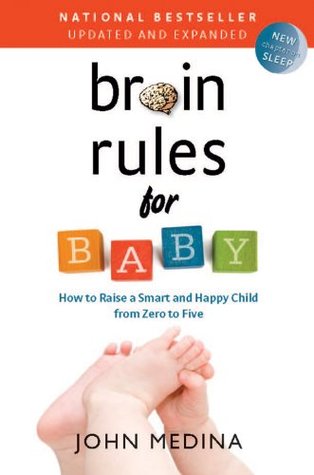More on this book
Community
Kindle Notes & Highlights
by
John Medina
Read between
November 16 - November 17, 2020
The more vomiting, the more fertilizer; hence, the greater effect on IQ.
having a baby is actually a risk factor for divorce.
Sustained exposure to hostility can erode a baby’s IQ and ability to handle stress,
Go home and love your wife!”
parenthood: sleep loss, social isolation, unequal workload, and depression.
They are profoundly influenced by what they record.
If the baby regularly experiences an angry, emotionally violent social environment, his vulnerable little stress responders turn hyperreactive,
stress hormones can interfere with bone mineralization.
They are at greater risk for anxiety disorders and depression.
(they use less energy to solve tough problems),
realize that intelligence both had heritable characteristics and was powerfully influenced by environment.
as a parent, can encourage your child’s natural desire to explore
“executive function.” Executive function controls planning, foresight, problem solving, and goal setting.
The more practice a child has in delaying gratification, the better aimed the jolt becomes, and the more control it can exert over behavior.
children who are able to filter out distractions, the data show, do far better in school.
risk taking.
children have to learn the sounds of the language
the brain needs the information-rich, give-and-take stimulation
Babies love to gaze at human faces. Mom’s is best of all—but they prefer any human
baby’s brain needs interaction with you, in person,
the genetic contribution is about 50 percent.
breast-feeding, talking to your baby, guided play, and praising effort rather than accomplishment.
Omar Alqarzaee liked this
The brain is not interested in learning. The brain is interested in surviving.
If you want a well-educated child, you must create an environment of safety.
it is just concentrating on the source of the threat.
especially in reading and writing.
Speak to your children as often as you can. It is one of the most well-established findings in all of the developmental literature.
We know accomplishment like that comes from gritty effort, not necessarily from high IQ.
intellectually rich activities (chess is one surprising example).
Kids praised for effort complete 50 percent more hard math problems than kids praised for intelligence.
a bright child who hates learning.
external influences can exert over internal behavior.
TV can lead to hostility, trouble focusing
TV also poisons attention spans and the ability to focus, a classic hallmark of executive function.
They had no positive effect on the vocabularies
The brain loves exercise
The Internet and associated media encourage private consumption.
No two brains develop at the same rate
hyper-parents often pursue their child’s intellectual success at the expense of their child’s happiness.
extreme intellectual pressure is usually counterproductive.
the brain is not interested in learning; it is interested in surviving.
Parenting is not a race.
it more like a steady state of being: They want their children to be content, emotionally stable.
they just need some close friends and relatives. And sometimes even siblings, as the following story attests.


